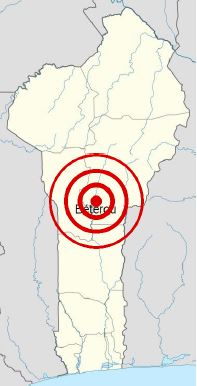Evaluation of the 'epicentre' strategy of The Hunger Project (Benin)
 The African Studies Centre Leiden has evaluated the ‘epicentre’ strategy of The Hunger Project in Bétérou, Benin. Epicentres can be described as ‘dynamic centres where communities are mobilized for action to meet their basic needs’. This was done in cooperation with Fred Zaal (KIT) and Wouter Rijneveld (Resultante). In this evaluation use was made of the PADev approach (Participatory Assessment of Development, www.padev.nl), but with several innovations.
The African Studies Centre Leiden has evaluated the ‘epicentre’ strategy of The Hunger Project in Bétérou, Benin. Epicentres can be described as ‘dynamic centres where communities are mobilized for action to meet their basic needs’. This was done in cooperation with Fred Zaal (KIT) and Wouter Rijneveld (Resultante). In this evaluation use was made of the PADev approach (Participatory Assessment of Development, www.padev.nl), but with several innovations.
The evaluation used participatory workshops in Bétérou and in a control area. A third workshop was held in Bétérou with specifically selected (very) poor people. In each of these workshops, participants assessed the changes in their lives in the past ten years, they described the various wealth classes in the area, listed and assessed all interventions that had taken place as to their impact on these wealth classes and themselves, and selected the best and worst interventions. They also analysed the relations between the changes and the interventions, the distribution of impact over wealth classes, the implementation values of the major agencies in the area, and their priorities for the near future. Additionally, interviews were held with several stakeholders. Doing the workshops in different areas made it possible to do counterfactual analysis, and doing a workshop with a specific selection of (very) poor persons made it possible to further analyse the effects on them. This was also combined with contribution analysis in order to analyse the specific contributions that The Hunger Project made to the changes that were found.
The evaluation found that The Hunger Project works in a relevant area, but mainly builds on the social capital that other agencies helped develop earlier. They contributed to ongoing developmental processes (e.g. in the areas of food security, health and women empowerment), along with other agencies and their interventions, but their impacts are mainly felt close to the epicentre building, and much less in the villages further away. Since the activities are mostly related to a building, the potential for impact to spread further is limited. The effects of their work mainly go toward the so-called ‘active poor’ and much less to those who actually suffer from hunger. The Hunger Project focuses much on the sustainability of services, for example through integration in public service provision. This will probably be successful for several of their interventions, but for the main developmental structure - an interlinked set of communal committees - this is more questionable, because villages have several parallel sets of such committees.
Wouter Rijneveld
Read the evaluation report (English)
Lire le Rapport Atelier PADev, zone Epicentre Arrondissement de Bétérou (francais)
Lire le Rapport Atelier PADev PAUVRES, zone Epicentre Arrondissement de Bétérou (francais)
Lire le Rapport Atelier PADev, zone de contrôle Arrondissement d’Alafiarou (francais)

